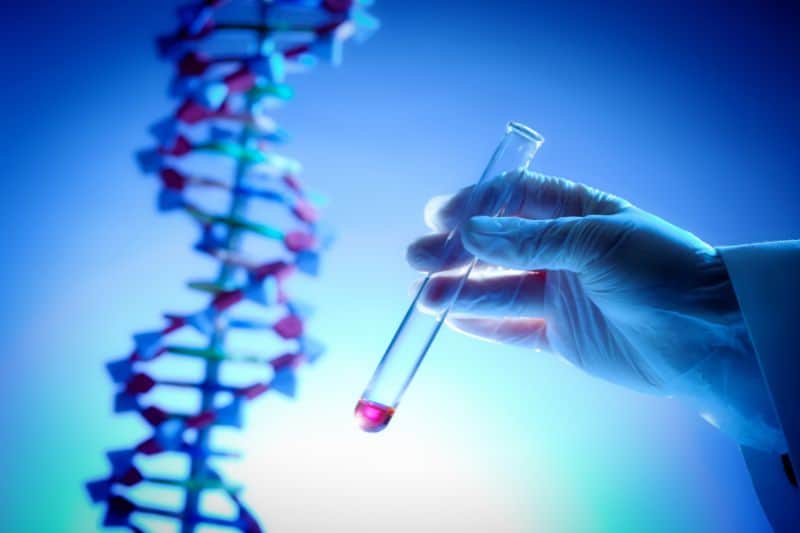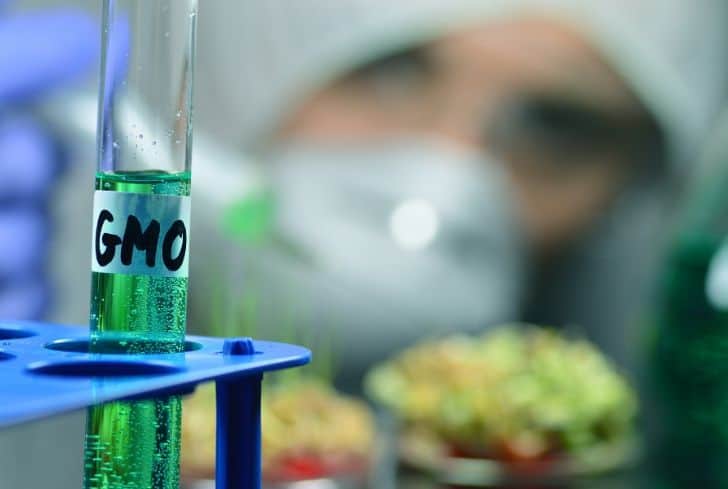‘Genetic engineering’ is the process of altering the structure and nature of genes in human beings, animals, or foods using techniques like molecular cloning and transformation.
In other words, it is the process of adding or modifying DNA in an organism to bring about a great deal of transformation.
Genetic engineering was thought to be a real problem just a few short years ago. We harbored fears that we might tamper with nature, presumptuously playing the role of a divine entity and depriving it of the opportunity to determine our physical attributes like hair color (blonde or dark-haired), eye color (blue or bright green), or even our level of intelligence.
The queries and concerns that we have regarding such an intriguing part of science are still alive and well, although they are less talked about nowadays than they were a few years ago.
But that’s not to say they are any less relevant.
In fact, they are as relevant today as they ever were. There are a number of very real and very troubling concerns surrounding genetic engineering, although there are also some very real benefits to further genetic engineering and genetic research.
Thus, it appears that genetic engineering has advantages and disadvantages, presenting itself as both a blessing and a curse. On the one hand, we have the potential to reap benefits by advancing this field of science. On the other hand, we run the risk of losing certain aspects as we delve deeper into genetic manipulation.
With genetic engineering, we will be able to increase the complexity of our DNA, and improve the human race. But it will be a slow process, because one will have to wait about 18 years to see the effect of changes to the genetic code.
~ Stephen Hawking
Various Pros of Genetic Engineering
Although at first the pros of genetic engineering may not be as apparent as the cons, upon further inspection, there are a number of benefits that we can only get if scientists consider studying and advancing this particular branch of study. Here are just a few of the benefits:

1. Tackling and Defeating Diseases
Did you know that some of the most deadly and difficult diseases in the world that have so resisted destruction could be wiped out by the use of genetic engineering?
Well, that’s correct!
There are a number of genetic mutations that humans suffer from that can be ended by genetically engineering the next generation to withstand these problems.
A case in point is Cystic Fibrosis, a progressive and dangerous disease for which there is no known cure except through the help of selective genetic engineering.
2. Getting Rid of All Illnesses in Young and Unborn Children
There are many problems that we can detect even before children are born. For instance, in the womb, doctors can tell whether your baby will suffer from sickle cell anemia or Down’s syndrome.
In fact, the timeframe within which abortions can be performed has been extended significantly to allow individuals to decide whether to terminate a pregnancy if the fetus exhibits either of these conditions.
However, with genetic engineering, we would no longer have to worry about either of them, and that’s because this science provides a way to cure diseases and illnesses in unborn children.
With proper use of genetic engineering, it’s possible for all children to be born healthy and strong, with no diseases or illnesses whatsoever present at birth.
That includes hereditary diseases, as genetic engineering has a way of preventing the passing down of degenerative diseases from affected parents to their children.
For instance, if you have Huntington’s, there is a 50% chance that your children will inherit the disease. If they don’t, they are likely to be carriers of the disease.
Of course, you cannot stop people from siring children because of their health status. However, you can deploy genetic engineering to help prevent the passing down of the disease, ensuring all children live long and healthy lives despite their parents’ health status.
3. Potential to Live Longer
While the common belief is that the human lifespan has decreased over the years, several research studies show that our life expectancy has increased by 150% since 1770.
Thanks to the remarkable progress in modern medical science, genetic engineering can potentially prolong human lifespans. By using this technology to address specific common illnesses and diseases that tend to manifest in life, we could prevent premature deaths and extend our time on Earth.
Additionally, through the use of genetic engineering, we can reverse some of the most basic reasons for the body’s natural decline on a cellular level, drastically improving both the span of our lives and the quality of life later on.
But that’s not all — genetic engineering can also help humans adapt to growing problems, for instance, global warming.
You see, as the places we live in become hotter or colder, adapting becomes necessary, and there are two ways to go about it: evolving and through genetic engineering.
Evolving is way natural and has fewer side effects, but it’s a slow process that takes thousands of years, unlike genetic engineering, which takes less time to create the same impact.
4. Produce New Foods
Genetic engineering extends beyond human-centric benefits. It encompasses the potential to create genetically modified foods that can withstand extreme temperatures, whether scorching heat or freezing cold.

Through this innovation, we can develop crops that are resilient in harsh environments while also enriching them with essential nutrients required for the survival of both humans and animals.
In addition, we may also be able to make our foods have a better medicinal value, thus introducing edible vaccines readily available to people all over the world.
5. Organisms Can be ‘Tailor-Made’
Genetic engineering provides a means to alter an organism’s genetic buildup to selectively showcase desirable characteristics. This capability presents numerous advantages, especially in maximizing the yield of different organisms.
Plus, genes can also be manipulated in trees to make them absorb more CO2 and reduce the threat of global warming.
In addition, genetic disorders may also be removed by replacing the faulty gene with a functional gene.
And, of course, disease-carrying insects, such as mosquitoes, may be changed to sterile insects to curb the spread of diseases, specifically malaria and dengue fever.
6. Faster Growth in Animals and Plants
The growth rate in animals and plants can be genetically modified to mature promptly. The crops can be engineered to survive in unfavorable conditions such as high heat or low light or increase crop yield.
This gives farmers the scope to expand farming beyond the traditional locations and use the empty lands for other purposes.
Also, animals can also be genetically modified to improve production. Dairy cows can be engineered to give more milk and to grow wool faster in sheep.
Animals bred for their meat, on the other hand, can be engineered to grow bigger and faster, while chickens meant for egg production can be modified to yield more eggs than they’d otherwise be able.
7. Pest and Disease Resistance
The modification through genetic engineering is mainly executed in plants. The genes are altered to make them perdurable and resistant to pests and diseases.

Using genetic engineering, cultivated plants can have built-in pest repellents that help reduce the requirement for harmful chemicals and other pesticides that cause damage to the water supply.
Various Cons of Genetic Engineering
Perhaps more obvious than the pros of genetic engineering, there are a number of disadvantages to allowing scientists to break down barriers that perhaps are better left untouched.
Here are just a few of those disadvantages:
1. Is it ‘Right’?
When genetic engineering became possible, peoples’ first reaction was to immediately question whether it was ‘right.’
It is true that certain religious beliefs and doctrines hold the perspective that genetic engineering is akin to interfering with the divine order, and as a result, they may prohibit its application on their followers, including children.
Besides the religious arguments, however, there are a number of ethical objections.

These diseases, after all, exist for a reason and have persisted throughout history for a reason. While we should be fighting against them, we do need at least a few illnesses; otherwise, we would soon become overpopulated.
Living longer is already causing social problems in the world today, so to artificially extend everybody’s time on Earth might cause even more problems further down the line, problems that we cannot possibly predict.
2. May Lead to Genetic Defects
Another real problem with genetic engineering is the question about the safety of making changes at the cellular level.
Scientists do not yet know everything about how the human body works (although they do, of course, have a very good idea). How can they possibly understand the ramifications of slight changes made at the smallest level?
What if we wipe out one disease only to introduce something new and even more dangerous?
Additionally, if scientists genetically engineer babies still in the womb, there is a very real and present danger that this could lead to complications, including miscarriage (early on), premature birth, or even stillbirth, all of which are unthinkable.
The success rate of genetic experiments leaves much to be desired, after all. The human body is so complicated that scientists have to be able to predict what sort of effects their actions will have, but they cannot account for everything that could go wrong.
3. Limits Genetic Diversity
We need diversity in all species of animals. By genetically engineering our species, however, we will have a detrimental effect on our genetic diversity in the same way as something like cloning would.
Gene therapy is available only to the very rich and elite, so traits that tend to make people earn less would eventually die out.
4. Can it Go Too Far?
One pressing question and issue with genetic engineering that has been around for years and years is whether it could go too far.
There are many thousands of genetic scientists with honest intentions who want to end the worst diseases and illnesses of the current century and are trying to do so by using genetic engineering.
While genetic engineering may address specific diseases or challenges, it is not a foolproof solution that guarantees an end to all ailments or the absence of new diseases emerging in the future.
5. Reduced Nutritional Value
It may grow concerns regarding the nutritional value of the products as some products can grow big quickly at the cost of decreasing their nutritional value.
6. Risky Pathogens
Viruses and bacteria adapt to the environment. When these cannot get through the natural repellent of the genetically altered plant, they can grow stronger and more resistant, negatively affecting non-genetically engineered plants/animals.
7. Negative Side Effects
Genetic engineering helps to solve an issue by transferring genes to the organism that will help it to combat the problem.
Sometimes, this can cause side effects. For instance, a plant can be modified to need less water, which would make it intolerant to direct sunlight.
Nature is an extremely complex, interrelated chain. Some scientists believe that the introduction of genetically-modified genes may have an irreversible effect with consequences not yet known.
8. Unfavorable Diversity
Genetically engineered species applied to the wild can have a negative impact on domestic species. As modified species tend to be stronger, this introduction of modified species may drive the rapid disappearance of unmodified species. This would result in decreased diversity.
Plus, the concern about genetic engineering misuse or abuse is valid and raises important ethical questions. What if we start demanding ‘designer babies,’ children whose hair color, eye color, height, and intelligence we can dictate?
What if we end up engineering the sex of the baby, for instance, in China, where it is much more preferable to have a boy? Is that right? Is it fair?
The problems with genetic engineering going too far are an ever-present worry in a world in which genetic engineering progresses further every day.
Genetic engineering is one of the topics that cause a lot of controversies. Altering the DNA of organisms has undoubtedly raised a few eyebrows. It may work wonders, but who knows if playing with nature is “really safe” or not? Making yourself aware of all aspects of genetic engineering can help you to form your own opinion.
References:






